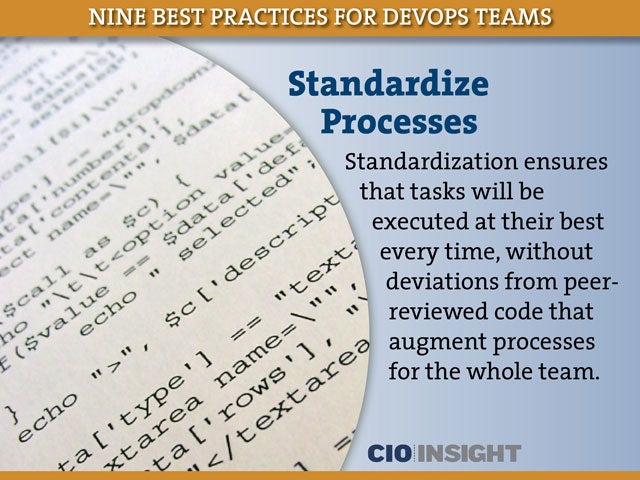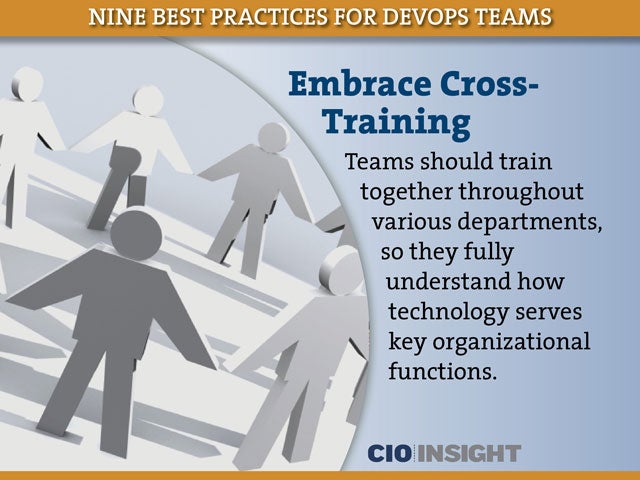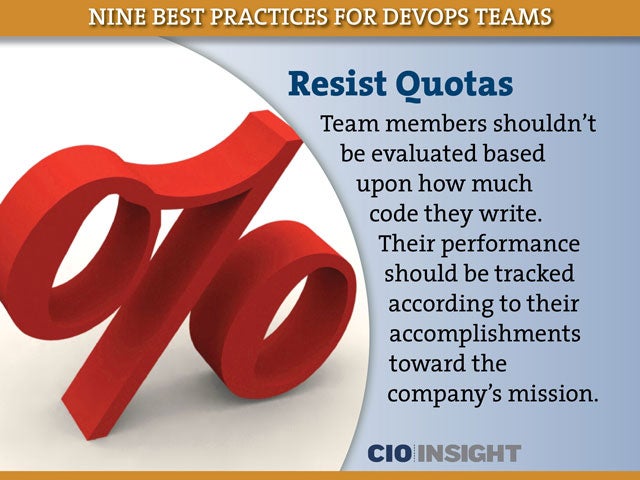
Nine Best Practices for DevOps Teams
 Never Do Anything Twice
Never Do Anything Twice
If any task has to be repeated manually, immediately see if it can be automated.
 Standardize Processes
Standardize Processes
Standardization ensures that tasks will be executed at their best every time, without deviations from peer-reviewed code that augment processes for the whole team.
 Allow Room for Experimentation
Allow Room for Experimentation
Standardization shouldn’t constrain team members from being creative and taking calculated risks—as long as they’re solving real problems as opposed to pursuing personal agendas.
 Build a Culture of Overlap
Build a Culture of Overlap
Meaning the software development folks should also get involved with product support so they know what it’s like to do their job.
 Establish Transparency
Establish Transparency
When everyone knows what everyone else is doing, it fosters open communication and collaboration, which can improve overall outcomes.
 Hire Business-Minded Individuals
Hire Business-Minded Individuals
You need DevOps team members who understand business needs and efficiencies, as opposed to simply how software works.
 Embrace Cross-Training
Embrace Cross-Training
Teams should train together throughout various departments, so they fully understand how technology serves key organizational functions.
 Resist Quotas
Resist Quotas
Team members shouldn’t be evaluated based upon how much code they write. Their performance should be tracked according to their accomplishments toward the company’s mission.
 Promote the Golden Rules
Promote the Golden Rules
These would include being treating others the way you would like to be treated, being humble and fair, and maintaining integrity. Model these qualities for your DevOps teams to emulate.